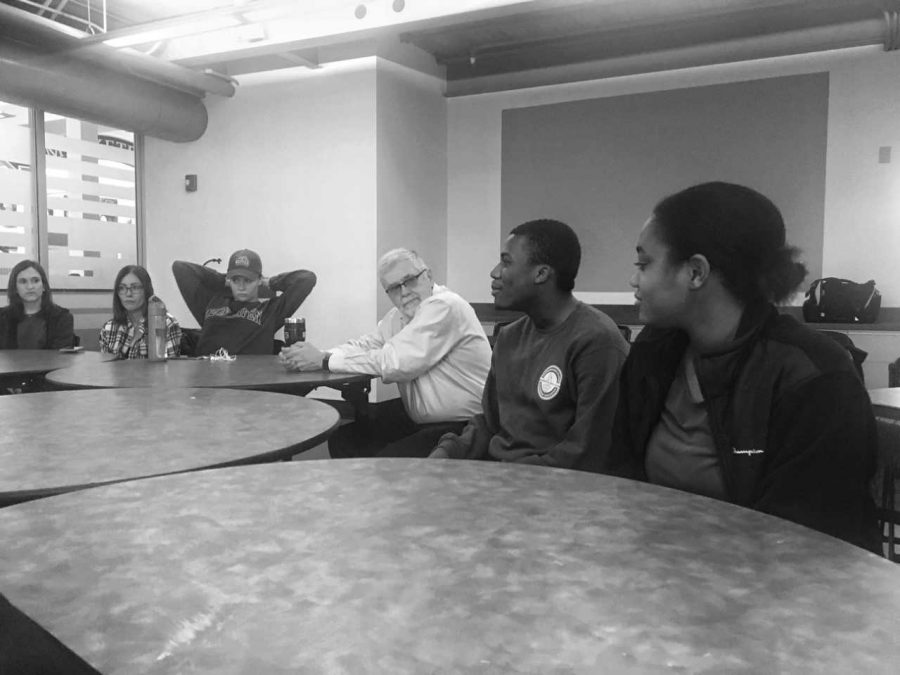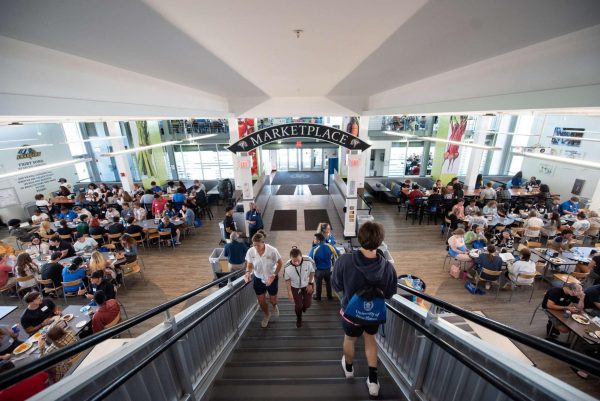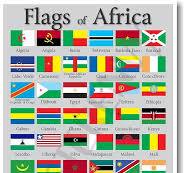Students Discuss Role of Police in Minority Communities
The American Criminal Justice Association (ACJA) held a roundtable discussion on the topic of police operating in minority communities. The discussion was hosted by Black Student Union (BSU) member Lachelle Barnes and moderated in conjunction by University of New Haven freshman and USGA senator, Jordan Harris and University of New Haven professor, Kenneth Gray.
Barnes organized the meeting to have a conversation that would address “the tension that I feel around campus.”
Students gathered in Bartels’ Student Dining on Wednesday, March 28 to talk about the effects of police brutality and the overall nature of policing in minority communities. Gray opened the discussion with a short monologue about his experiences operating as a special agent in the FBI and operating in the Greater New Haven area for twenty-four years. He was quick to set the tone of the conversation and dispel any questions regarding whether or not the police have a record of unfairly targeting minorities.
“The short answer is in some cases yes,” Gray said.
Recent strings of recorded acts of police brutality were brought up as examples, including the cases of Tamir Rice and Philandro Castile. In the former, a twelve-year-old African American boy was shot to death by a police officer in Cleveland Ohio for playing in the street with a toy gun, and a licensed gun owner was shot after a traffic stop when he reached for his registration, despite alerting the policeman to the presence of a gun beforehand.
These are some of the stories that many minority parents use to warn their children about law enforcement, and while the trend may feel new to some, it has deep seeded history.
“This generation, at least we get to see the shootings,” Harris said, before sharing some advice he’s used to keep himself safe in a potential encounter. “I put my registration above me so that I don’t alarm the officer.”
The conversation shifted between the two perspectives of the law enforcement officer and minorities themselves, remaining constructive rather than combative. As the University of New Haven has a large population of students studying the field of Criminal justice, many of the students present at the table presented topics from the perspective of a police officer and what happens to an individual’s mind in a life or death situation.
“Officers are trained to survive,” one student said, drawing criticism from the opposing side of the table.
The conversation drew to a close once the topic began to drift further away from its origin, as participants began to criticize the presentation of minority people in the media. They suggested this as one of several causes as to why police brutality seems to plague minority communities especially, and suggested that a byproduct of it lead to the wariness that many minorities feel around police.
“I think it’s important to think that when you’re dealing with the police you’re not just dealing with the police, you’re dealing with an individual,” said Gray.







